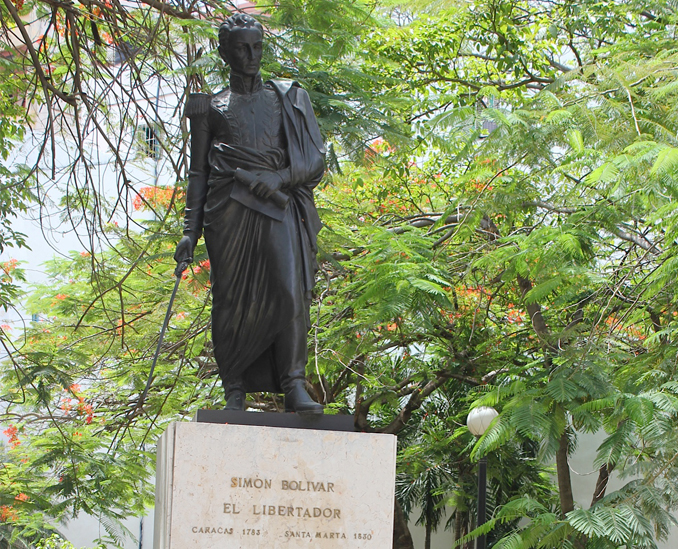
Written by: Dr. Dushka H. Saiyid
Posted on: August 20, 2013 |  | 中文
| 中文
Cuba
The minute you land in Cuba, you are transported to the 50s; while the world has moved on, Cuba is frozen in time, in no small measure due to the trade embargo imposed on it by the USA. While life might be a struggle in a stagnant state-run economy, the people are warm, helpful and laid-back. Live music pours from every corner, while the stunning colonial architecture has been preserved with loving care. Sculptures of Cuba’s heroes stand guard in plazas all over the country, homage to their sacrifice, and often martyrdom, in the struggle to free Cuba from foreign domination. Maybe it is this history of struggle and suffering that makes these people so soulful!
Columbus arrived in 1492, but soon left for greener pastures. This was the same year that the last bastion of Muslim rule in Spain, the Emirate of Granada, surrendered to Queen Isabella I of Castille. The Spanish settlers did not arrive till the 1520s, and any resistance by the native Indians (Tainos) was put down ruthlessly. Their leader, Hatuey, was burnt at the stake. This was the modus operandi of the Spanish Inquisition in Spain at the time, when dealing with Muslims and Jews and other errant citizens.
Slavery was introduced by the Spanish mainly for the sugar plantations, and flourished till it was abolished in 1886. Carlos Manuel de Céspedes, a poet, lawyer and a plantation owner, made a declaration of liberty by freeing his own 150 slaves and calling for Cuba’s independence from the Spanish rule. He was a creole, of Spanish origin but born in the Americas. This was the first war of independence, which dragged on despite the help from a brilliant mulatto (of mixed White and Black parentage) general by the name of Antonio Maceo, otherwise known as the “ Bronze Titan”, and the Dominican, Gomez. Céspedes was killed in a battle and there was stalemate in the war. A pact was signed in 1878, in which the rebels gained nothing after ten years of war, which was fought in the east of the island, as the rebels were never able to breakthrough into the west, where Spanish economic power was concentrated.
 |
José Martí had been arrested at the age of 16 when he fought in the first war of independence. Over the next 20 years he developed his ideas in exile, formed the Cuban Revolutionary Party and persuaded Gomez and Maceo to join it. José Martí and men arrived in Baracoa in April 1895; he raised an army of 40,000 men, and in the first engagement with the panish at Dos Rios, was killed charging the Spanish on his white horse. Maceo and Gomez headed west but met stiff resistance, and the blow came when Maceo was killed just south of Havana in 1896.
Cuba was war torn and a stalemate persisted till the Americans sent their battleship Maine in January 1898. The Americans offered to buy Cuba for $300 million, and when the Spanish rejected that offer and refused to withdraw from Cuba, declared war on Spain. The Spanish surrendered unconditionally after the first battle, which was led by Theodore Roosevelt, later the President of the USA. At the historic peace treaty in Paris in 1898, where Cuba was promised independence with conditions, ominously enough, no Cuban representative was invited. Amongst the conditions was the Platt Amendment that gave the Americans right to intervene militarily in Cuba whenever it saw fit. The Americans also used their influence to secure a naval base in the Guantanamo Bay for its strategic interest in the region. The Platt Amendment was passed by the Congress despite opposition by the Cubans, and became part of the 1902 constitution of Cuba. Americans had replaced the Spanish as the new rulers of Cuba.
In the intervening period, till the revolution of 1958 when Fidel Castro seized power, Cuba lurched from dictatorships to semblance of democracy, while the American control of its economy and corrupt politicians became comprehensive. By 1959 the Americans in Cuba owned 75% of commercial transactions, and 90% of mines and telecommunications. Luis Pérez Jr., a professor at the University of North Carolina has written, “ They ran the best colleges, headed the most prestigious clubs. They lived a privileged life in Havana and on the sugar plantations. They became financiers and as landowners, became a powerful force in government. They bought politicians and hired policemen just like they were doing with farms and factories.” Cuba was completely dependent on the USA, a classic case of neo-colonialism.
Click to view picture gallery
You may also like: